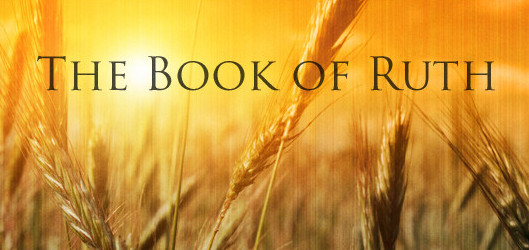I grew up with an amazing older sister, Tonya, who is great at everything she does. She is talented, smart, beautiful and outgoing. Growing up and being “grown” with her I have always striven to be as good as her. Spoiler Alert! I never was. The only thing I seemed to be a little bit better than her in was memorizing Bible scripture. Living in the shadow of someone truly talented can make you feel inferior and unworthy. It’s not Tonya’s fault. I Love her to death and would fight to the end with her. Satan knew that this was a weakness of mine and played on that to keep my mind off the truth. God made us different for different purposes. We are not competitors, we are teammates playing different positions.
The feeling that you are not as good as other people is awful feeling. Felling like that you are ugly and unattractive and that nobody likes you only keeps you from being you. That is Satan pushing that feeling that you are dumb and that other people are smarter than you. Satan is telling you that you are a failure and a loser.
Why do we feel like we are not good enough?
These thoughts come from accepting the Satan influenced values of the world. Satan knows that wrong thinking leads to wrong actions and wrong feelings. In this case, the wrong feelings are feelings of inferiority.
What does the world value most? The world puts its highest value on three things:
(1) Physical attractiveness,
(2) Intelligence, and
(3) Money.
Most people think that they must have these things in order to feel good about themselves.
Physical attractiveness
So far as the world is concerned, a person’s looks is one of the most important things about him or her. The world says, “If you are a ‘beautiful person,’ you are worth a lot; if you are not beautiful, you are not worth much and you probably won’t be happy in life.”
This is one of Satan’s lies. Even though it is not true, many people believe it and it has a profound effect upon them. Some people dislike themselves and some even hate themselves because they are so dissatisfied with the way they look.
1 Samuel 16:7
“God sees not as man sees, for man looks at the outward appearance, but the Lord looks at the heart”
They think, “If only I could look like so-and-so, I’d be happy.”
The fact is that physical attractiveness does not make a person happy. God wants us to see that our worth as a person does not depend on our outward appearance.
Intelligence
The world says, “If you are smart, you are worthwhile; if you are not, then you are not worth much.”
This is another of Satan’s lies. Your value is not determined by how smart you are. I had a hard time in school. I do not learn as easily as others. When I would give a wrong answer in class, everyone laughed. That made me feel dumb and worthless.
The more a person fails at something, the more discouraged he gets. Gradually he comes to think that he is a complete failure. He may decide that he can’t do anything right and quit trying. This brings on more failure and fear of trying anything new.
God never values a person by his intelligence. When the Lord Jesus chose His disciples, He did not choose the smartest, most intelligent people of His day. He chose plain, ordinary people. The Bible says,
1 Corinthians 1:26-31 New International Version (NIV)
26 Brothers and sisters, think of what you were when you were called. Not many of you were wise by human standards; not many were influential; not many were of noble birth. 27 But God chose the foolish things of the world to shame the wise; God chose the weak things of the world to shame the strong. 28 God chose the lowly things of this world and the despised things—and the things that are not—to nullify the things that are, 29 so that no one may boast before him. 30 It is because of him that you are in Christ Jesus, who has become for us wisdom from God—that is, our righteousness, holiness and redemption. 31 Therefore, as it is written: “Let the one who boasts boast in the Lord.”
Money
A third way that the world values a person is by his wealth. The world says, “If you want to be important and you want to be happy, you must have money.”
This too is one of Satan’s lies. Money does not make a person happy, nor does it determine his value. The Lord Jesus said,
“A man’s life does not consist in the abundance of the things which he possesses.” Luke 12:15
Those who make wealth their goal in life fall into many sins. The Bible says,
“But those who desire to be rich fall into temptation and a snare, and into many foolish and harmful lusts, which drown men in destruction and perdition.” 1 Timothy 6:9
God wants us to see that we do not need money to be happy. The Bible says,
“Godliness with contentment is great gain. For we brought nothing into this world, and it is certain we can carry nothing out. And having food and clothing let us with these be content.” 1 Timothy 6:6-8
Change Your Thinking!
Wisdom is seeing things as God sees them. God never values a person by his outward appearance, or by his intelligence, or by his wealth or social position. God deals with rich people exactly the same way he deals with poor people. The Bible says,
“For there is no respect of persons with God.” Romans 2:11
Physical attractiveness, intelligence and money are not evil in themselves. It is the wrong value that the world places on these things that is wrong. If we accept the wrong beliefs and values of the world, it will lead to feelings of inferiority.
To change the way we feel about ourselves, we must change our thinking. We must see that our worth as a person does not depend on our outward appearance, our intelligence, our wealth or our social position.
We must see ourselves as God sees us. What are we worth in God’s sight? We are worth what He paid for us. He gave His Son to redeem us. That’s how much we are worth in His sight.
We must see too that God loves us and accepts us as we are. His love does not depend on what we are or what we have or what we do. God says, “Regardless of whether you are a success or failure, regardless of what you may think about yourself, regardless of what other people may think about you, I LOVE YOU!”
Recognize that you are not alone
You are not alone in your feelings. As you go about school or work, you come in contact with many other people—some smiling, talking, and laughing. You might think that they do not have a care in the world. But underneath it all, you will probably find that they, too, have deep self – doubt and fear. Almost all people have these feelings.
When you realize that other people have the same problem that you have, it helps you to understand them.
Make genuine friends
You don’t have to be beautiful or highly intelligent or have a lot of money to make friends. The best way to have a good friend is to be a good friend. One of the best places to find good friends is in a local church. Never make fun of another person. Respect others and accept them as they are. Let them know that they are important to you. Be especially considerate of those who have difficulty making friends. They will love and appreciate you for this. Nothing helps your self confidence more than having genuine friends. When you realize that other people like and appreciate you, it is easier to accept yourself.
Learn to do something well
Everyone needs to have proper self-esteem. One way to build proper self-esteem is to learn to do something well. Everyone has at least on thing that they are really good at.
Find something that you like to do and then work at it! Say to yourself, “I’ll learn as much about the Bible a possible,” or “I’ll succeed in my part-time job,” or “I’ll learn how to play basketball as well as possible,” or “I’ll see how many friends I can make,” or “I’ll learn to be a good tennis player,” or “I’ll learn to be a good cook.”
Don’t waste time feeling sorry for yourself. Make the most out of what you have. Develop a skill that will make you feel good about yourself. One of the best ways to develop a skill is to use it for God. Cook for people, play basketball with younger kids that need friends, or be that joyful, positive christian at work. Do the best you can in that particular thing. As you do, you will begin to like yourself more.
Face your problems honestly
Get alone where you can be quiet and think. Then make a list of all the things which you most dislike about yourself. Be honest. No one need see this except you and God. Pray about these things.
Do people get the wrong impression of you from the way you dress? You can correct this and you should. Are you lazy and careless about your work? Do something about it! We should do all things to the glory of God. Careless, haphazard work does not bring glory to God.
Whatever your problems are, write them down so you can face them honestly. Check the ones that you can do something about. Perhaps you know an older person—someone you can trust—who could help you.
“Unsolvable Problems”
What about the problems you have left on your list—those “unsolvable problems”? Everyone has one or more of these.
The best thing to do with your “unsolvable problems” is to give them to the Lord Jesus. Tell the Lord that you cannot handle these problems and that you are giving them to Him. Your prayer should contain these thoughts, stated in your own words:
When you have prayed destroy your paper as a symbol that you have turned these problems over to the Lord forever. Whenever you start to fret about these problems again, remind yourself of your decision. Tell the Lord that you have turned these problems over to Him and that you are trusting Him to handle them.



